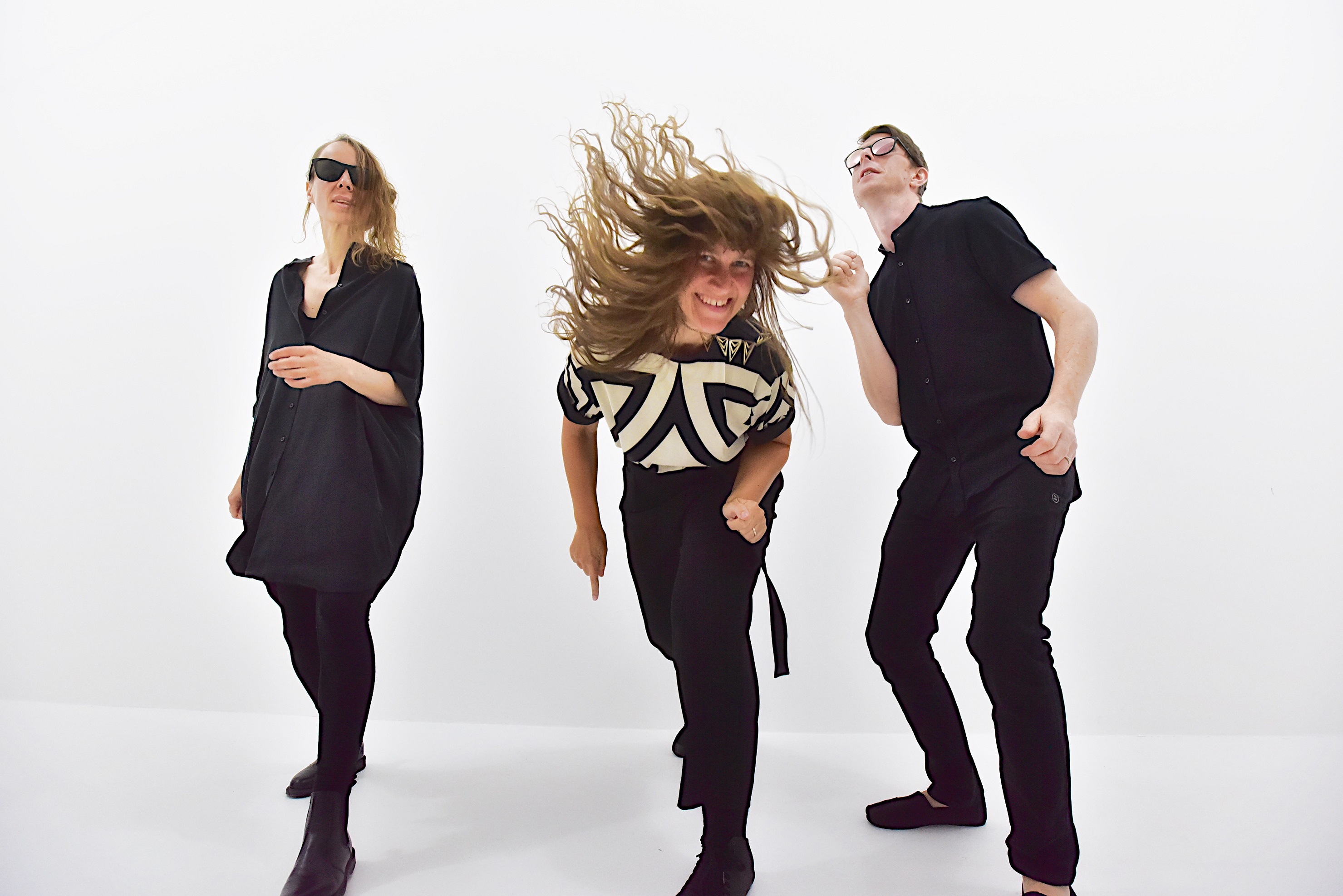I believe that there’s a Jazz for every mood, activity, and state of mind. While browsing around for new music, I fell on Vula Viel’s “Do not be afraid” and “What’s Not Enough About That” and I was suddenly transported to another state. A tweet later, Bex Burch (founder) agreed to spare me some time so I can tap into what’s behind the Jazz group from London and what Vula Viel is all about.
What is Vula Viel and how did it come to life?
Vula Viel means good is good. It was actually the name given to me when I lived with the Dagaaree tribe in Ghana. I shared it with the band because it was a very generous name, the meaning being such a positive one. It does come with its challenges, though, and I like that because it pushes me to try and do some good in the world, which is the kind of person I actually want to become.
So for me, this name holds so much because it holds all of my memories there and the memories of some of my greatest friends who gave me that name.
And when I came back to my home country (UK), I had a craving and a desire to do something about that experience, which ended up being starting my own band that is now called Vula Viel. That was another amazing moment for me and since that moment, which was December 2012, it has become my life.
So when I was thinking about what to name my band, I wanted the challenge of doing something good in the world. It’s a lot; what is it and how did it come to life. It’s lots of different things to me.
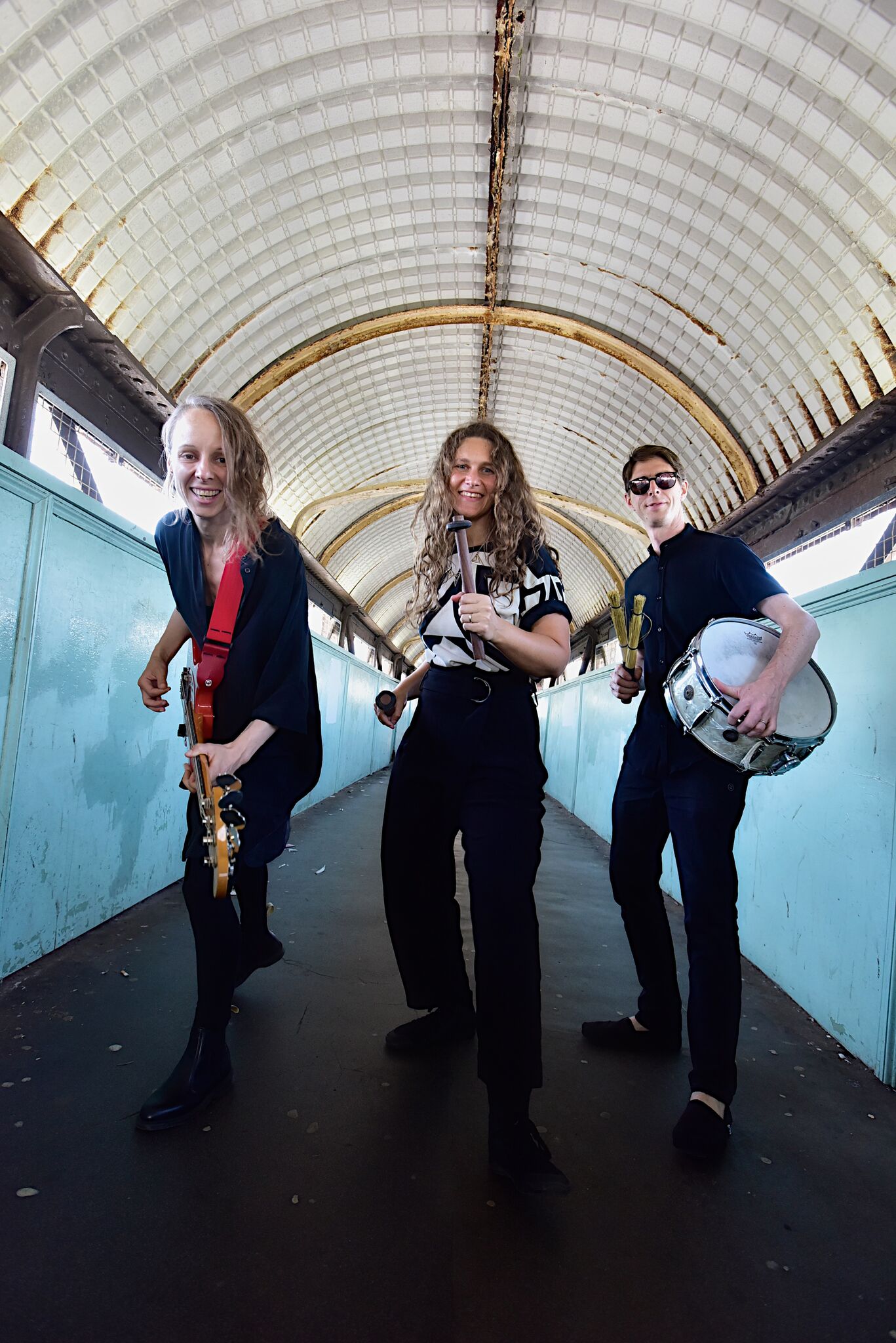
Can you tell us about your creative process in the studio? How do your thoughts translate into notes and sounds?
I am actually doing some writing right now; I could show you. It starts with this notebook that I take everywhere with me. I write down words, rhythms and grooves. It’s all a big mess. And then as tunes come together, I try to go through these. There’s this other book too, one which has other ideas, and bits of music, some notations, and some of the stuff I’ve been thinking about with different types of notation. It’s cyclic, rather than linear, which is what my music is like.
So my rhythm was always asymmetrical, that’s one of my fundamentals. For me, what makes something groove is tension and release. So basically, if your rhythm is tick tick tick tick, there’s no pull.
Anyway, it starts like this and it’s all over. It’s chaotic but I let that happen; I’m aware of it. I’m like there are all these things, what are they going to become?
It’s the same as playing. I’ll have my instrument, the gyil, and my favorite shaker behind me. Sometimes, it’s all about playing. I just improvise every day. Some people call that practicing, but I don’t really practice. There are some things that come out of improvising that I can transcribe later on as well.
And I’ve got this instrument which I can take around with me, it’s tuned to my gyil. It’s small and allows me to try out ideas.
Yeah, so some of it is on the instrument, some of it is away from the instrument. There will be bits and notes that are more thoroughly thought through than others.
Actually, a few days ago, I sat down and went through all of my notes. I really got a grip on what these are because there are around 8 tunes going on at the moment for me, and I really need to know what to do with them and give them a name, although that name might change.
I love writing and I love this process, which is why I’m going into so many boring details. Writing music is just something I really love. I love every part of it. I love the kind of ideas that come to me, and me writing them down. That’s the visionary side. Some ideas come to me in my dreams, or just suddenly out of nowhere. But, I’m also really excited about the other side, which I believe is the responsibility of a composer. This is creativity, which is also honoring those ideas and really questioning them. This is something that’s not really discussed. Everyone talks about how John Lennon woke up with this song in his head, but that’s not it, that’s not the end of it. It’s not the song we currently love, right? There’s also this other part where you question your ideas. What is this music? Like, I’m looking at this page here, which has all my ideas that I really love. However, it’s not yet something that’s communicated. This is the creative part, like the work ethics; sitting down, going ok yeah, that’s nice, but where does it start? What is its shape? What is the hook like? What’s the tension? The release? I love this procedure. I’m new to it, and I’m learning so much. We all have ideas, but it’s how you develop them that matters. I’m new to this part of the composition and it feels like I’m an amateur. Every day I learn more about how little I know and how limited my composition is, and that’s exciting—it’s my career!
It’s like looking at a mountain and knowing that it’s where I’m headed, and I’m not sure if I’m going to go that high in this lifetime. This is my journey, and it feels amazing.
Another part of the writing process includes Jim, who riffs based on Jim Jones. Playing and rehearsing with them is a very important part of the process. I would like to give them a shoutout because their input is massive!
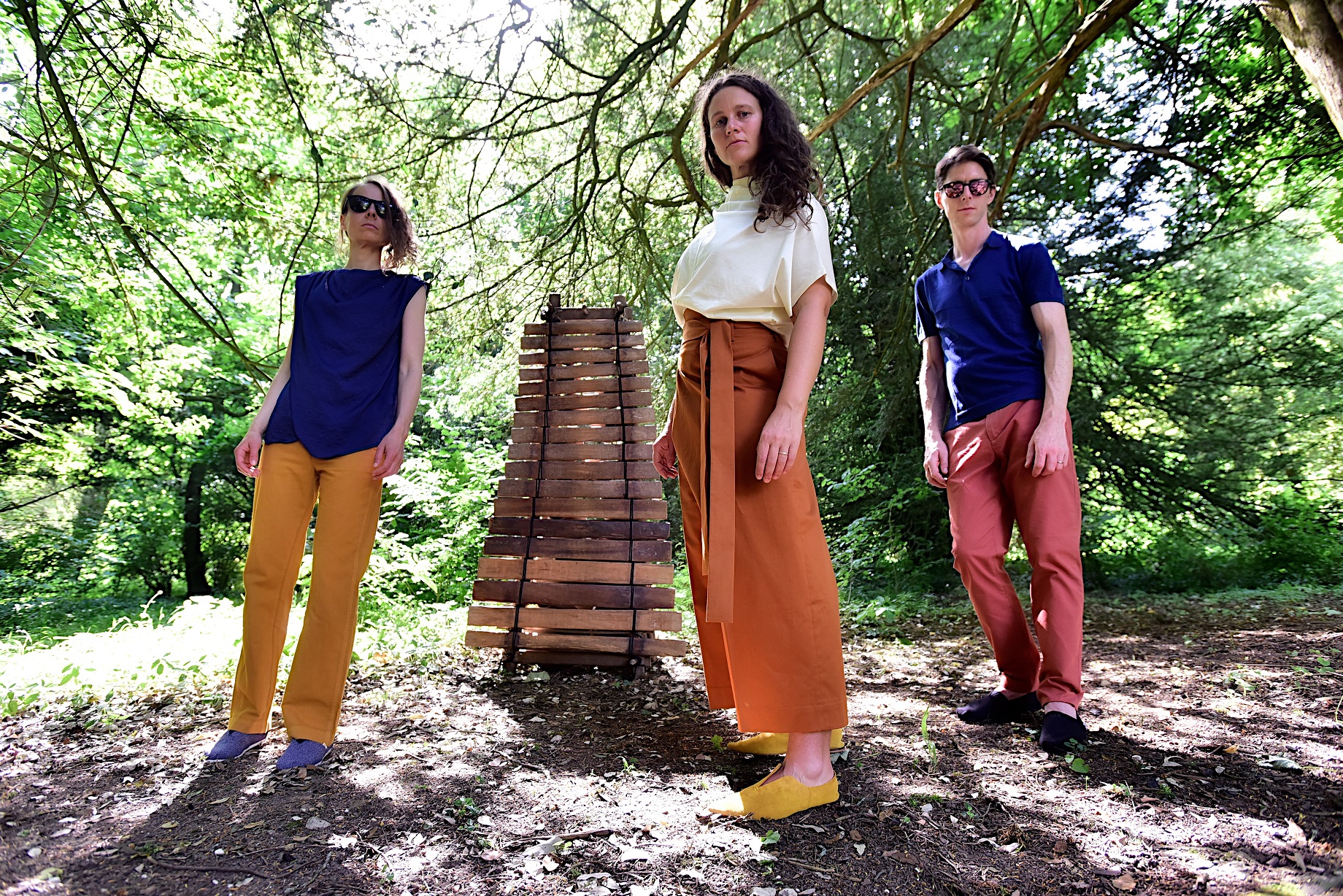
What would you say the message behind your music is? I mean, you partially answered that, but if you wanted to define it in a phrase
I just feel really lucky that this is what I’m doing. I’m taking that seriously and I’m taking myself seriously. The meaning? I hope my music changes, actually. I expect it will change a lot more as I grow as a human and as a composer, and that’s something that’s really important for me to say, to answer that question, because you know, our priorities, awarenesses, and understanding of the world really changes, and I hope that I’m capable of that change and that growth.
It’s the music that’s important, that’s the way I see it, and that’s what I’m trying to do now with my music—to get me out of the way and see what the music is trying to do here. I’ve learned so much doing it that way than trying to impose my will on it because I have such a limited ego and understanding.
Music can change our experience of the world, I would call that miraculous. Changing a person’s experience with the world is a miracle.
What’s the biggest disappointment you faced so far as a music musician?
There’s disappointment all the time, but they’re just so small compared to the hugeness of music and how lucky I feel to be a part of it and to be working in this industry. The disappointments are only in my head.
On some level, this is a constant—it’s part of being a musician. You start playing music, and you improve by being told what you’re bad at. If you don’t want to be disappointed, you’ll possibly never improve. On one hand, my life as a musician has been full of disappointment, but on the other hand, it’s part of attention and release, which actually gives momentum and certainty for me. Disappointments have always given me learning points, which of course, I won. I welcome that, I welcome the truth, I don’t want some rose-tinted version of the truth to keep me in a happy bubble.
When I first shared the playlist and Bernard actually listened to the two tracks there and then got your tracks, he said that he feels there is a touch of Metal to it, but you’re not letting it out. I told him: “No, it feels more like Post-punk.” Can you settle that argument between us?
I’ve heard this question before. Basically I don’t think there’s anything we’re not saying, but there’s a purpose in, sometimes, not letting things out. Sometimes I ask the band to do things that are gonna be hard. I remember this one time, we said it would be very uncomfortable if we play it this way, so I said yes, certainly! Let’s try that then! It doesn’t always have to be “let’s feel easy here”.
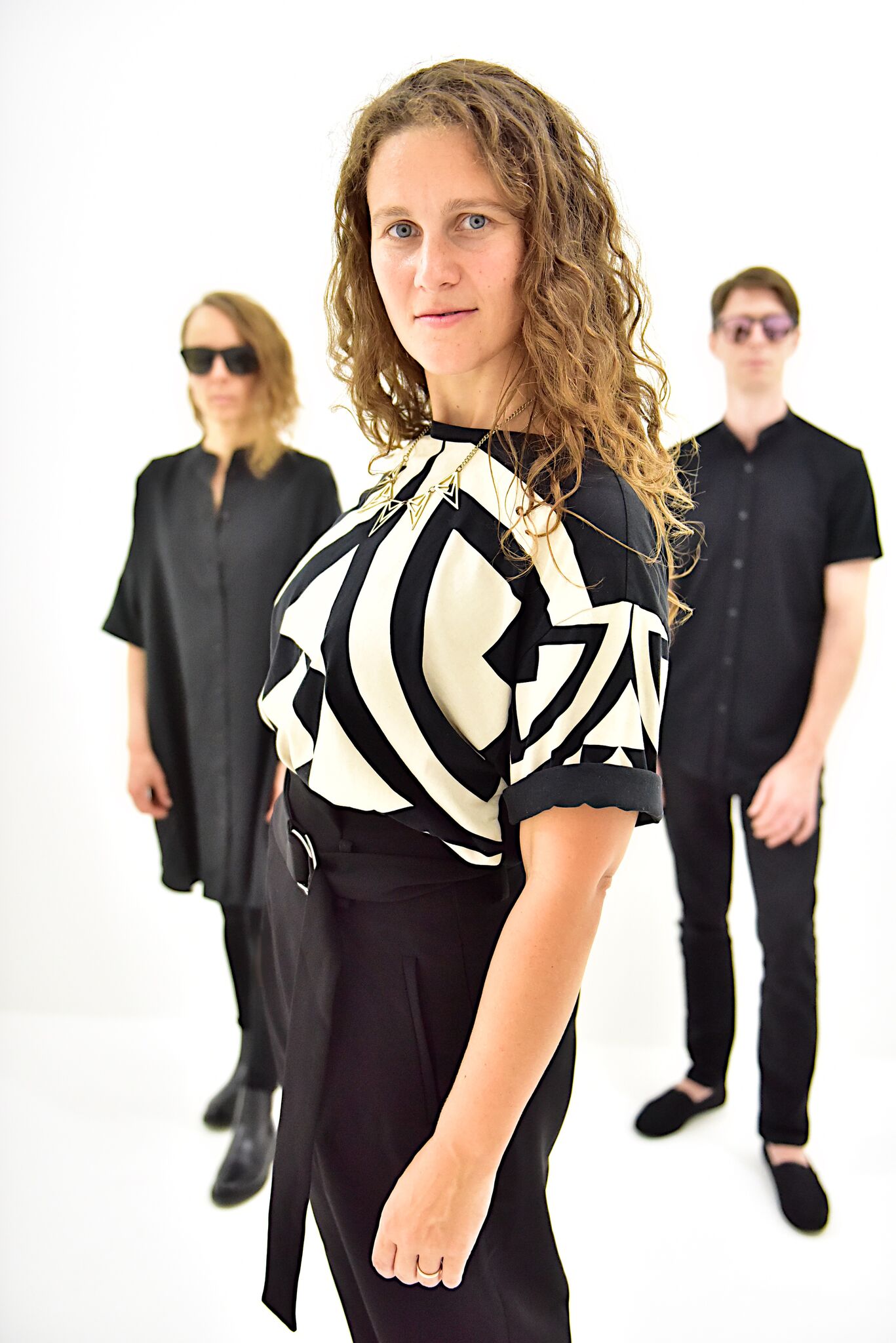
How did “What’s Not Enough About That” come to be?
So there was this stage for “What’s Not Enough”, which I remember well. At this particular stage, when I was collating everything, I was in Copenhagen for a summer in 2018. The collating was a bit less organized and clear, which made the album less clear as well. Not that this means it’s not good as music of course because the music is bigger than my abilities, it can do things.
For “Do Not Be Afraid”, I was, by necessity, in a nuclear space, because I was grieving my father who passed away very suddenly. “Do Not Be Afraid” was me connecting with him, and with the impossibility of him being here. That was a really different space for what I’ve been describing.
Then, in summer 2018, I was putting my ideas together for “What’s Not Enough”, it marked a time for me, becoming much more present in myself. In terms of life changes and things like that, losing our parents, I guess the creation of this album was like: Okay, I’m here, my father’s gone, but I’m still here. That’s actually where the title track and the blurb on my favorite questions which are: Are you alive? Are you loved? What’s not enough about that? My dad is not alive anymore, but I am, and that’s a lot to accept. Then it’s like, yeah, woah, how amazing is that? He gave me life, him and my mother, and all my ancestors. Am I loved? Yes. I am loved by my father and I carry that love. I’m loved by my partner in life, my family, my friends. That’s hard to carry sometimes too, like to accept and receive all the good in life. And then, what’s not enough about this whole thing is the creation of it, and those words, and that tune. Really, it’s about a celebration of still being here, and becoming more present, becoming more adept at what I do. People can prefer music from any album of course, but for me, I know that I am getting better at this, right? That’s important. I can’t imagine ever feeling that I finished learning with music. If I ever do, I’ll let you know!
So, “What’s Not Enough” was coming out of the “Do Not Be Afraid” stage. You know, these albums are like my children and my stages in life. Putting out an album is finishing it and then releasing it and doing everything else. That’s not this music work, but other things that help to share the music with as many people as possible, like interviews, all that is very important. Releasing an album means it’s not mine anymore, it’s yours. Every single person that listens to it and understands it, it means something different to them.
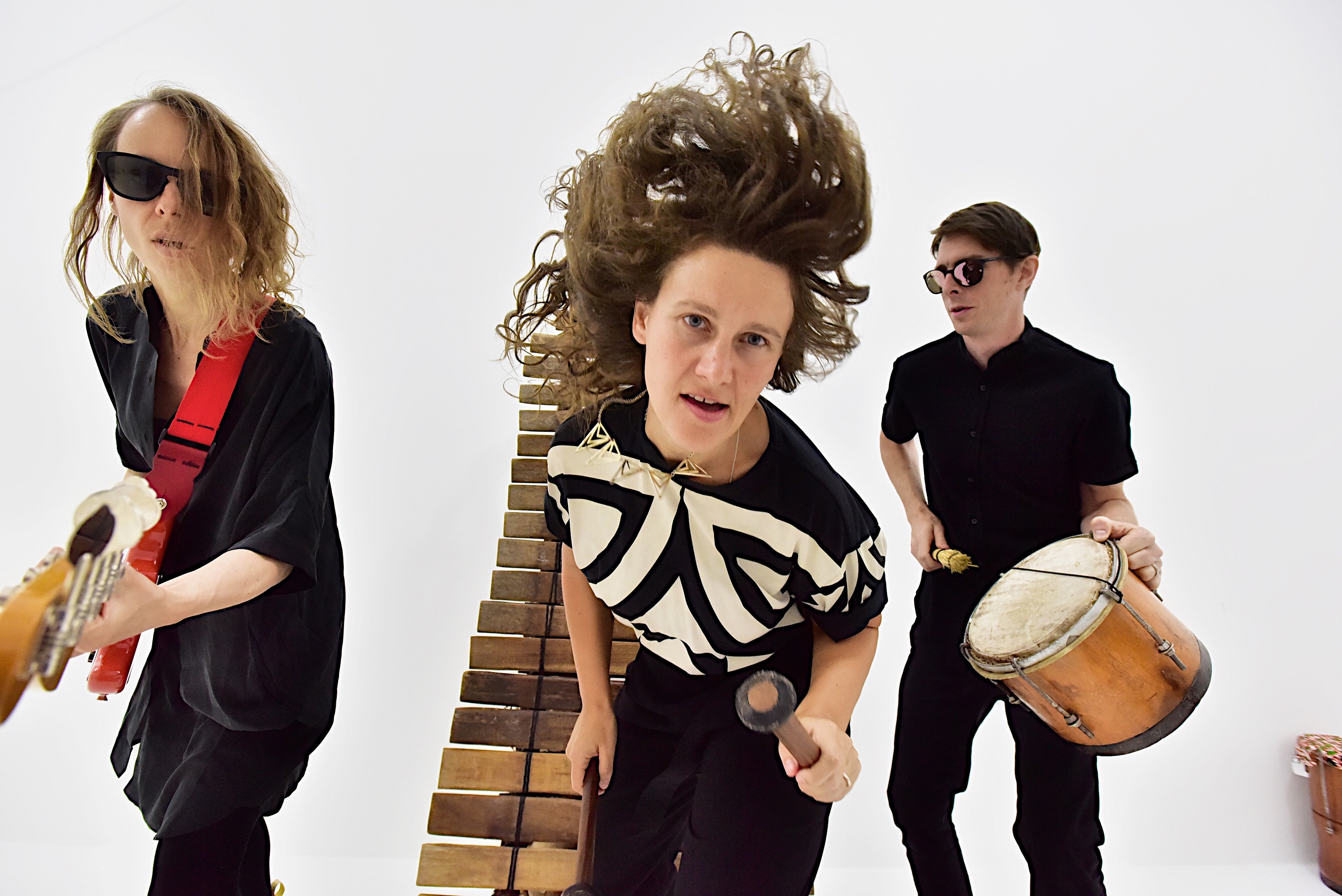
What would be your dream collaboration and what would you want to explore with them/him/her?
I’m actually making my list at the moment, trying to actually get their contacts and call them up. I’ll tell you their names, then maybe if they read your article, they might be interested.
Idris Ackamoor
Laurie Anderson
Evelyn Glennie—he’s not a composer actually, she’s a percussionist. Her mastery of sound is incredible!
Peter Zummo—he’s already a collaborator in a way, but I am pursuing a deeper one. He’s also a master. He’s doing what I would call messy minimalism. I used to call him in the 70s and 80s to improvise with him. He has really taught me so much.
If you were to associate your music to a smell, what would it be?
It’s a place, not one smell. It’s a top of a hill in North Yorkshire, where there’s actually a eucalyptus and pine trees. That, there, is the smell. There are fields nearby, the wind blows and there’s no car pollution.

